The Beginners Guide to Finding the Perfect Guitar Strings.
Curious about the best strings to suit your style out there today. Read on...
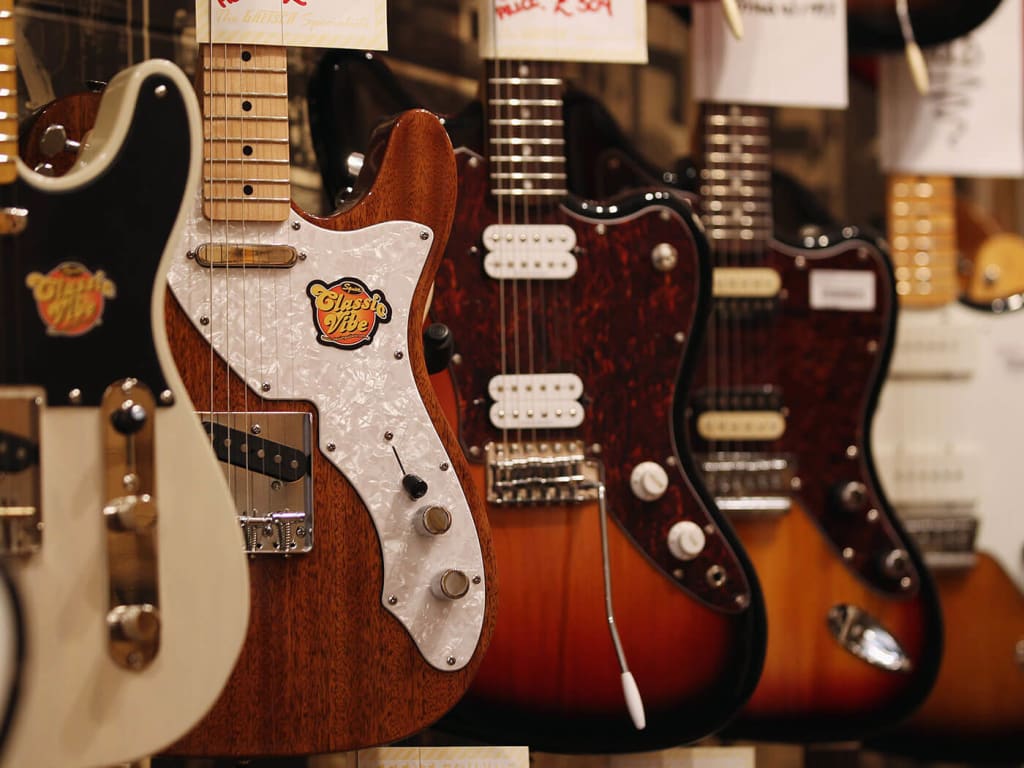
There is a massive amount of information concerning guitars out there today, telling you what you should and shouldn't buy, what you should like and shouldn't like - it can all get very overwhelming. This is particularly evident when it comes to guitar strings. There's countless brands and gauges to choose from so it's more than understandable to be a little confused when starting out.
You may be wondering:
What the hell are string gauges?
What brand is best?
What are guitar strings made of?
What strings should I buy?
Wouldn't it be great if there was a guide for all this? Oh, well would you look at that. It's right here!
The beginners guide to finding the perfect guitar strings.
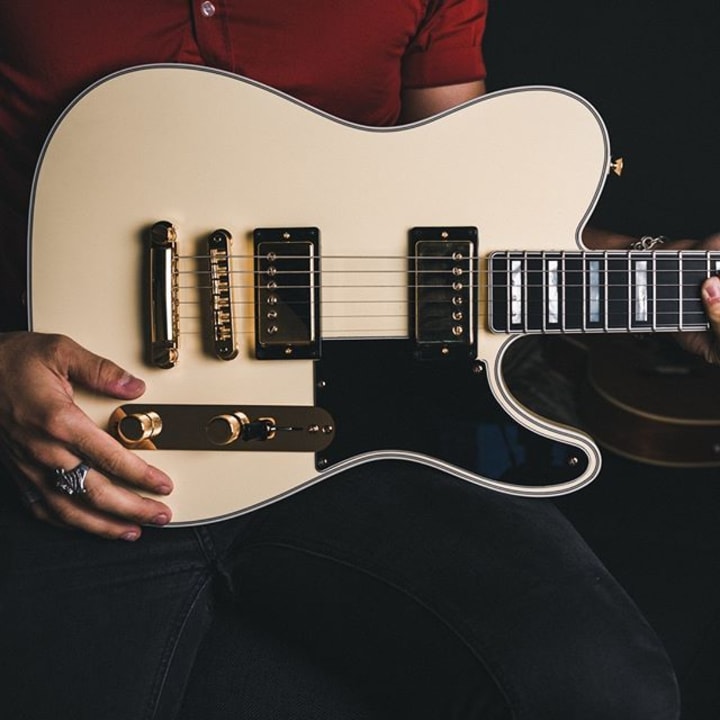
1. What the hell are guitar string gauges
The gauge of a guitar string determines how thick it is. The thickest string on a guitar plays the lowest notes and, as they gradually get thinner ascending, the notes also get higher. Thicker guitar strings naturally produce lower bass notes, while thinner strings create high treble notes.
String gauge is measured using a universal number system which refers to the diameter of the string by 1/1000th of an inch. The higher the number, the thicker the string is. Companies often refer to string packs by their thinnest string e.g 9s, 10s and 11s.
So basically (with the exception of hybrid sets) the higher the number on the pack, the thicker the strings will feel, the harder they will be to play and the lower the strings will sound.
e.g 11s are thicker than 9s
Thin strings - 8s and 9s are categorised as thin strings and are seen as best for beginners, lead guitarists and anyone looking for an overall brighter tone. The thinner strings make it easier to bend, so 8s and 9s are ideal for pop, country and lead guitar in rock. Many lead guitarists like Brian May, Mark Knopfler and Eddie Van Halen use 8s and 9s.
Regular strings - 10s are the most common and well rounded gauge on the market. They are thin enough to allow bending but also thick enough to give a meaty rhythm. Regular strings are best for guitarists who don't identify as either rhythm or lead and like to play a multitude of genres. 10s don't give you the punchy tone of 9s or the deep buzz of 11s but you really can't go wrong with them. They also hold good tension on the neck for tuning stability.
Thick strings - 11s and 12s are considered thick strings. They are popular among jazz and blues players as they provide a deep, bass driven tone. They can be more difficult to start learning with than 9s or 10s but it's not something you cant get used to with time. You won't be able to get the uniquely, warm tone 11s provide any other way.
Hybrid strings - These are strings that blend two sets together so you can get the best of both worlds, essentially. Very common amongst players who don't think one style could ever suit them, hybrid strings are a growing trend nowadays. These strings combine three heavier strings with three lighter ones. Some may find the tone to be inconsistent but my experience with them has been quite positive. Hybrid strings are definitely worth exploring.
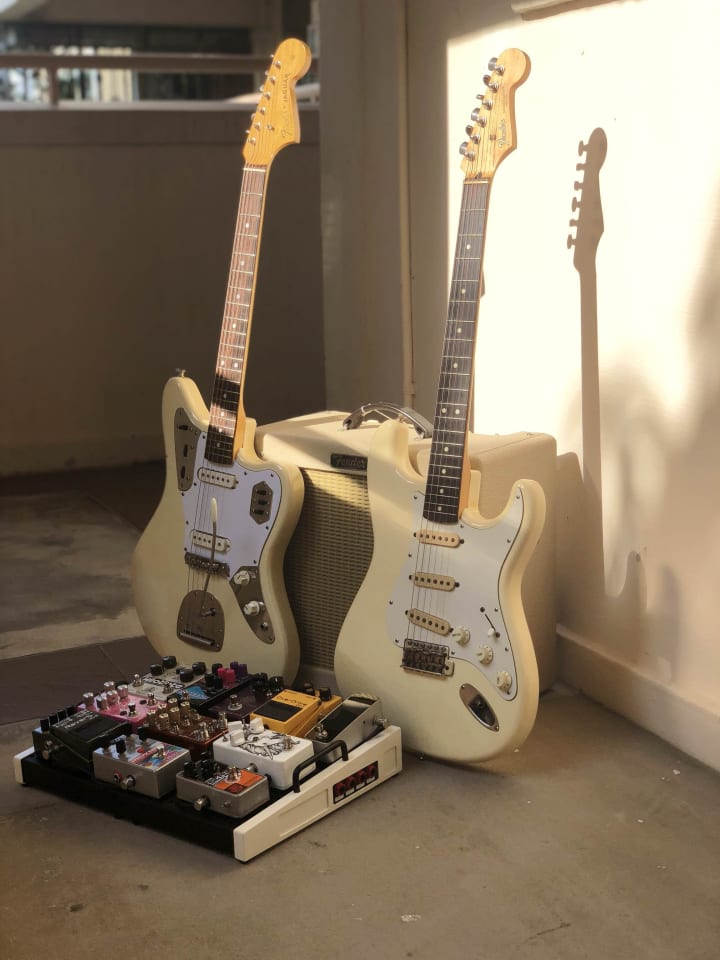
What are the top brands?
There are loads of guitar strings out there today but you can't go wrong with the top three below. You'll find something unique and different about each but they're all excellent in their own way.
Ernie Ball strings
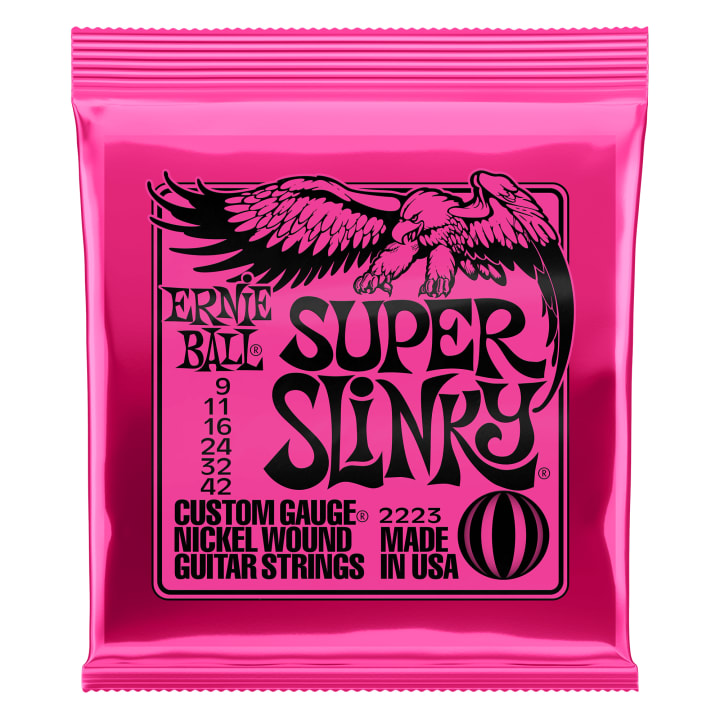
This electric guitar string company houses an immensely versatile and highly revered range to choose from. They are the most popular guitar string in the world mostly due to their affordable price, bright tone (despite being nickel-wound) and wide range of uses.
D'addario strings
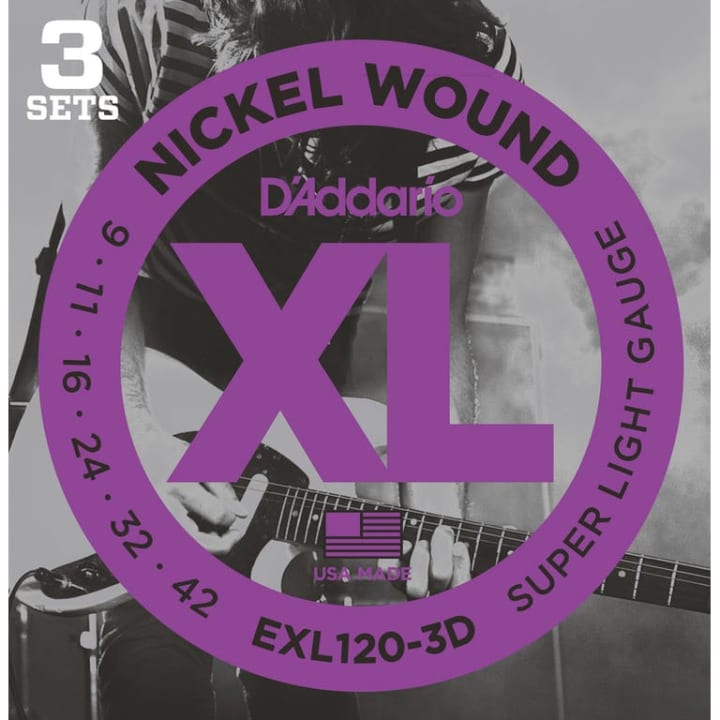
D’addario are Ernie Ball’s biggest rivals. They make a super versatile series known as XL which is used by a large amount of famous musicians. The high carbon steel core lets them last long periods of playing and also gives them a distinctly bright tone.
Elixir strings
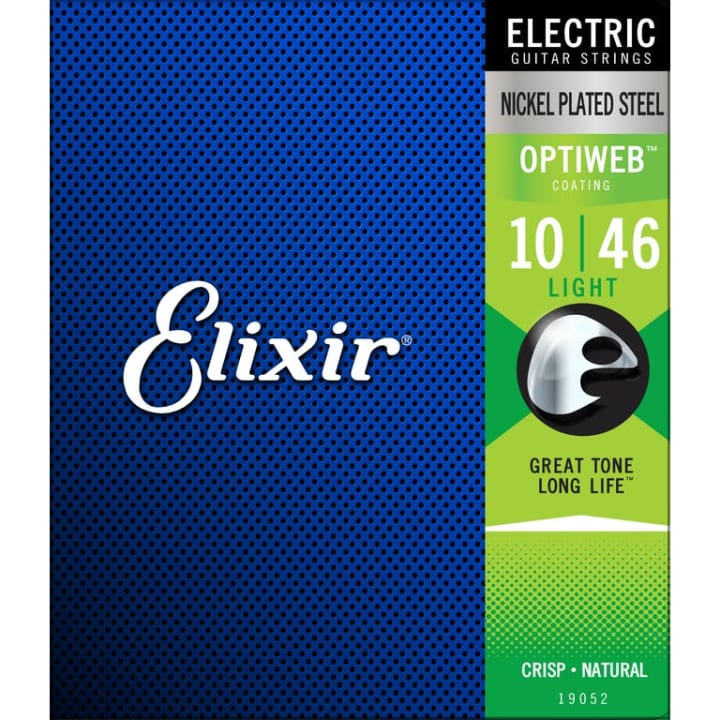
Elixir are at the top of their game with their Optiweb series. Known for creating long lasting strings that don't sacrifice the high end frequencies many coated strings lose, Elixir has amassed an avid following.
Elixir strings offer a uniquely natural feel and indistinguishable sound from a standard uncoated set. One of their biggest pull factors is also the wide array of string gauges they house to suit whatever style you play.

What are guitar strings made of?
Nickel is the most common material used to make strings. It’s adored by guitarists because of its rich and warm tone. These strings come in three variations:
- Nickel-wound
- Nickel plated
- Pure nickel
The first is the warmest of the three, while pure nickel is more tonally transparent. Nickel plated strings sit in between the two.
Steel strings are powerful, bright and punchy. They are a great pick for guitarists that like to have a strong attack and presence. Although some can find the tone to be a little brittle and dry sounding, a little EQ meddling goes a long way.
Coated strings are covered in an almost indistinguishable, extremely thin layer of polymer. Their purpose is to increase the durability of the strings, allowing them to retain their clarity beyond that of a regular set. Some find this coated layer dulls the overall tone but they certainly do what they intend to. This method can be applied to both nickel and steel.
(Your strings will also naturally last longer if you wipe them down with a cloth after playing, no matter what brand or type you use.)

So what should I buy?
It's important to note that finding which guitar strings are for you is a process that comes with patience, time and experimentation. There's really no easy way around finding the perfect set for you, but there is a perfect guide - and it's this one right here.
When starting off, I highly recommend trying the Ernie Ball slinky series to help get your head wrapped around the basics of guitar strings. On the back you can see a long list of guitar players who use them and you can find the right set to sound like your key influences quite easily.

There's tons of options and you really can't go wrong with any of them. They're also very affordable so you can get a few different sets to try to see which gauge and style suits you best before continuing on with your journey.
If you've tried Ernie Ball and aren't the biggest fan, I'd recommend trying Elixir's Optiweb series next. Personally, I've had great experiences with Elixir and couldn't sing their praises enough. I'd also consider their acoustic set to be the best on the market today.
And there you have it. The beginners guide to finding the perfect guitar strings. Don't be afraid to play it safe - these guitar strings are all popular for a reason. Nobody can tell you the best strings for you, it's all up to what you like to hear and what you like to play.
Like this? Wanna see more? Just click the little picture of me for tons of content just like this. Feel free to leave a like or even a tip if this helped you at all. Merry Christmas! - Ciarán
About the Creator
Ciarán Coleman
'There's no time for hatred, only questions
What is love, where is happiness
What is life, where is peace?
When will I find the strength to bring me release?'
- Jeff Buckley
Interested in me writing for you?
Gmail; [email protected]

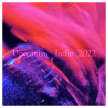


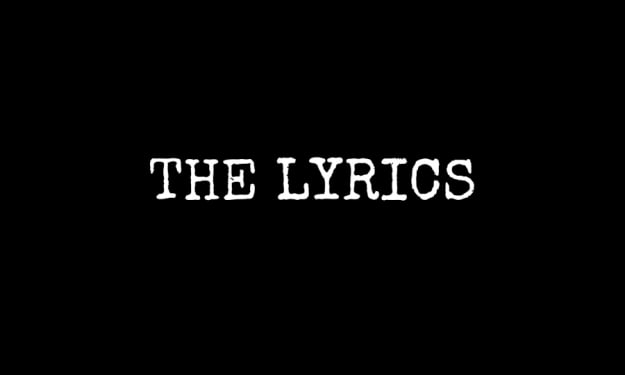

Comments
There are no comments for this story
Be the first to respond and start the conversation.